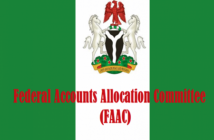The National Economic Council has highlighted the need for emergency climate-sensitive budgeting to effectively deal with recurrent flood crises in Nigeria.
This recommendation came from the Presidential Committee on Flood Mitigation that presented its report during the NEC’s 137th meeting.
The committee stated that given the devastating impact of floods, there has to be a provision for emergency funds through appropriate budgetary allocations.
Kogi State governor and chairman of the committee, Yahaya Bello, disclosed this to State House correspondents yesterday after council’s meeting presided over by Vice President Kashim Shettima.
“Given that flood management is cross-cutting and multi sectoral, requiring a comprehensive structure guided by strong frameworks and policies, the committee recommended the establishment of a national flood management council to be domiciled in the office of the vice president.
“On the advice of the proposed council, the president should declare a state of emergency when a Category 4 flood occurs,” Governor Bello said.
On funding options, he disclosed that it recommended that the Natural Resources Development Fund should immediately respond to mitigate flood crises in Nigeria.
Further speaking on the adoption of the Flood Committee report, the minister of budget and planning, Atiku Bagudu , disclosed that Borno State governor Babagana Zulum had made available six pivot irrigation schemes, each costing $250,000, to support other states that are desirous of utilizing them to support additional production and pastoralist population.
Bagudu added that Zulum had also provided two drilling rigs that are capable of drilling up to 2000 metre, in support to other states.
Giving update on Excess Crude Account, the deputy governor of Enugu State, Ifeanyi Ossai, stated that as of September 2023, the excess crude account stood at $473,754.57, Stabilisation as of September 2023 was N37,597,965,211.43, while the Current Balance of Natural Resources Fund is N144,683,136,928.25.
Meanwhile, the Council disclosed that the first phase of Nigeria’s ambitious new Special Agro-Industrial Processing Zones (SAPZ) programme was projected to create nearly 500,000 permanent jobs, according to figures presented to the Federal Executive Council this week.
The minister of agriculture, Abubakar Kyari disclosed that the SAPZ initiative, spearheaded by the Federal Ministry of Agriculture and Food Security, aims to establish agricultural production, aggregation, processing and value addition hubs across the country in partnership with state governments and private investors.
Kyari said the SAPZ programme aims to attract over $500 million in investment in its first phase alone while creating an estimated 3,000 jobs during the construction phase and nearly 500,000 permanent jobs once operational. The zones are also projected to reach and support 100,000 farmers.
According to him, specific zones will focus on boosting high-value crops that suffer substantial post-harvest losses today, such as tomatoes in Kano where losses can reach 50-60%.
He said by ensuring crops are quickly processed or value-added, the SAPZs will significantly reduce food waste while enhancing Nigeria’s food security.
Also, the Bauchi State Governor Bala Mohammed disclosed that the Federal Ministry of Health and Social Welfare had unveiled a strategic plan aimed at radically improving healthcare access and outcomes across Nigeria over the next four years.
According to him, details of the Health Sector Renewal Initiative, which were presented to the National Economic Council (NEC), highlighted major disparities and inequalities in health and social development across Nigerian states.
Mohammed explained that the plan sets the goal of saving lives, reducing suffering, and delivering health to all Nigerians regardless of location or income level.
He said this will be achieved through massive investments to upgrade 17,000 primary healthcare centres and 774 secondary facilities nationwide to offer Universal Primary Healthcare, free at the point of use.
The governor said clear funding mechanisms have been defined, requiring increased budget allocations and spending by federal and state governments.
Economic Council Mulls Emergency Budget For Flood Disasters
Share.




